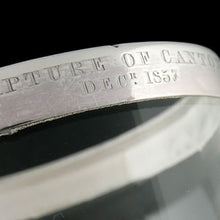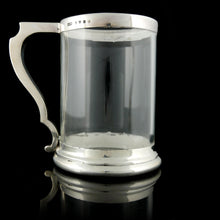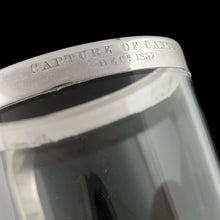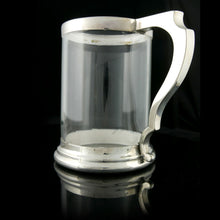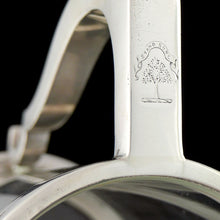Capture of Canton Mug - A Scottish Officer’s Armorial Tankard, 1861
- Regular price
- £1,200
- Sale price
- £1,200
- Regular price
-
- Unit price
- /per
Adding product to your cart
Height: 11.5cm (4.6in)
Silver and glass. Glass tankard with silver mounts, the rim engraved ‘Capture Of Canton December 1857’, and the handle further engraved with the Clan Anderson crest of an oak tree beneath the motto ‘Stand Sure’, The silver mount bearing the maker’s mark of J&S Marshal. Hallmarked Edinburgh 1861.
Following the seizure of a British merchant vessel, the Arrow, by Chinese officials, Canton was besieged in the opening chapter of the Second China War (1856-63). Siege operations were carried out by a Naval Brigade and Royal Marine Light Infantry, HM’s 59th Regiment and supporting arms. Many of the wounded British were treated by Surgeon Charles Abercromby Anderson MD on Dutch Folly island in the Pearl River opposite the British and French factories at Canton. Despite the Treaty of Tientsin (1858) by which Britain and France were to be represented in Peking, the war rolled on (after the Western diplomats were turned back), with the despatch in 1860 of a force from British India. Among the latter was one Robert Burn Anderson, who fell into enemy hands.
Read more
His memorials in Glasgow Cathedral bear the same Anderson crest and motto as the present tankard. The memorials are inscribed: ‘In memory of ROBERT BURN ANDERSON / Lieutenant 1st Bombay Fusiliers / Brigade-Major Hodson's Horse / Adjutant Fane's Horse / Born in Glasgow 14th October 1833 / Died in China 27th September 1860 / … treacherously taken prisoner by the Chinese when in command of an escort and under protection of a flag of truce, he died a victim to the cruelty of a barbarous foe. His dust reposes in the Russian Cemetery at Pekin with that of his fellow sufferers.’







